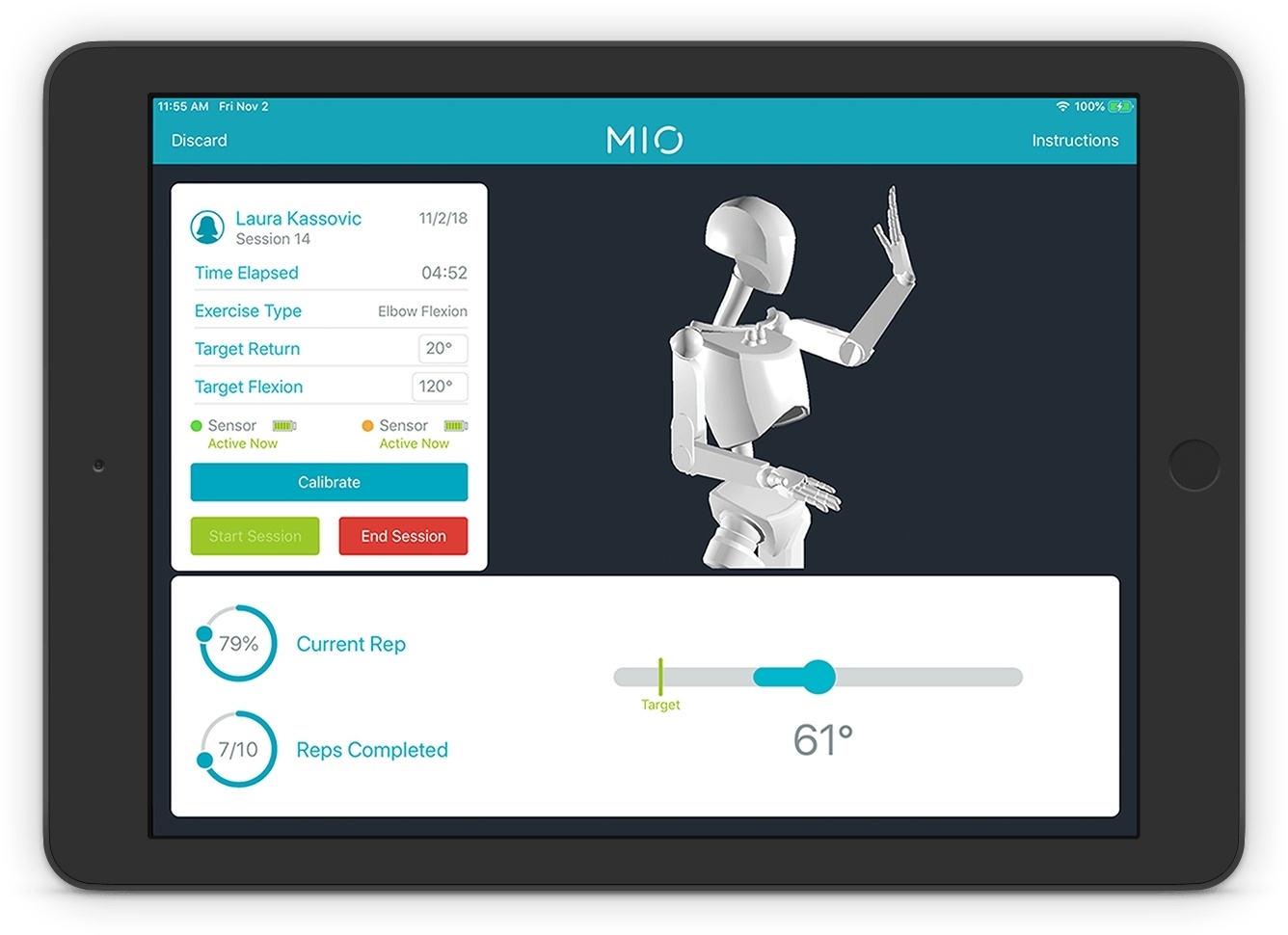
MbientLab, a company building the next generation of sensors and tools for the healthcare industry, announced the availability of its MIOTherapy (MIO) – the first wearable technology platform that integrates the effectiveness of traditional physical therapy with smart sensors, therapeutic exercises, games, and 3D visualization technology to personalize and improve outpatient rehabilitation and accelerate recovery.
Wearable Sensor Technology to Improve Outcomes of Therapy
Using a unique combination of technology software and sensors, MIO helps physical and occupational therapists improve the experience and outcomes of therapy for their patients. MIO provides consistently accurate measurements that can be used to monitor and personalize treatment, increase patient compliance, reduce recovery time, and reduce healthcare costs.
Research shows that most physical therapy patients do not fully adhere to their plans for care because of factors that include lack of social support, self-doubt and perceived barriers to exercise.1 This results in millions of Americans living with preventable mobility issues and pain that reduce their quality of life. This lack of compliance also increases the cost of healthcare for these patients due to a higher number of urgent care and emergency room visits related to their injuries, and in some cases, inpatient post-acute care stays.
How it Works
Patients using MIO attach its sensors to any body part using stickers or flexible straps, so that physical therapists can measure, collect, and record all motion from a specific body area, delivering key insights about a patient’s range of motion and measurable progress through their exercise program. The extremely accurate sensors measure, analyze, and store a patient’s physical therapy data in the cloud for easy access and analysis via the MIO App. MIO also offers real-time 3D visualization, providing an exact picture of what the patient is doing at any moment, and can be used in-office or via a telehealth platform with clinical oversight.
MIO has undergone extensive sensor testing with more than a dozen third-party users, including physical therapists, researchers, clinics, and university labs:
- Since 2013, there have been more than 250 papers published on the use of the MbientLab sensors used in MIO.
- Physicians at University of California, San Francisco have demonstrated that the MIO sensors can increase patient compliance by 20 percent to 80 percent in post-operative retinal surgery patients
- Researchers at Duke University found an average cost-savings of $2,745 per patient undergoing virtual physical therapy with MIO compared to traditional physical therapy
MIO is now commercially available in the U.S. and internationally and can be purchased by physical and occupational therapists, caregivers and researchers.
